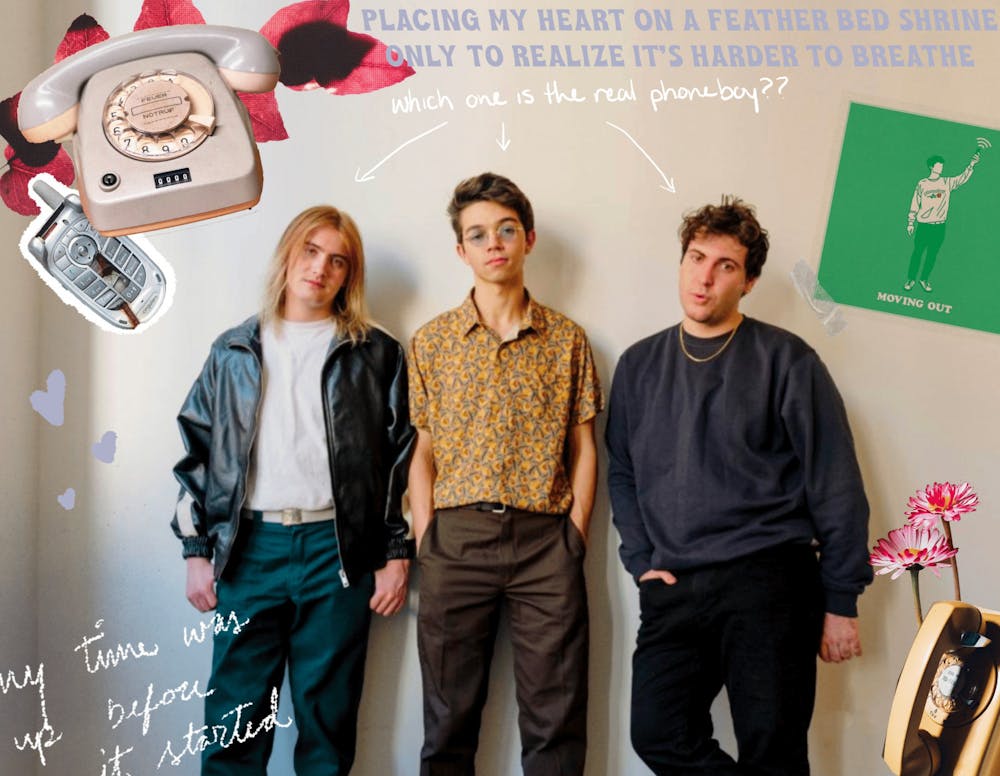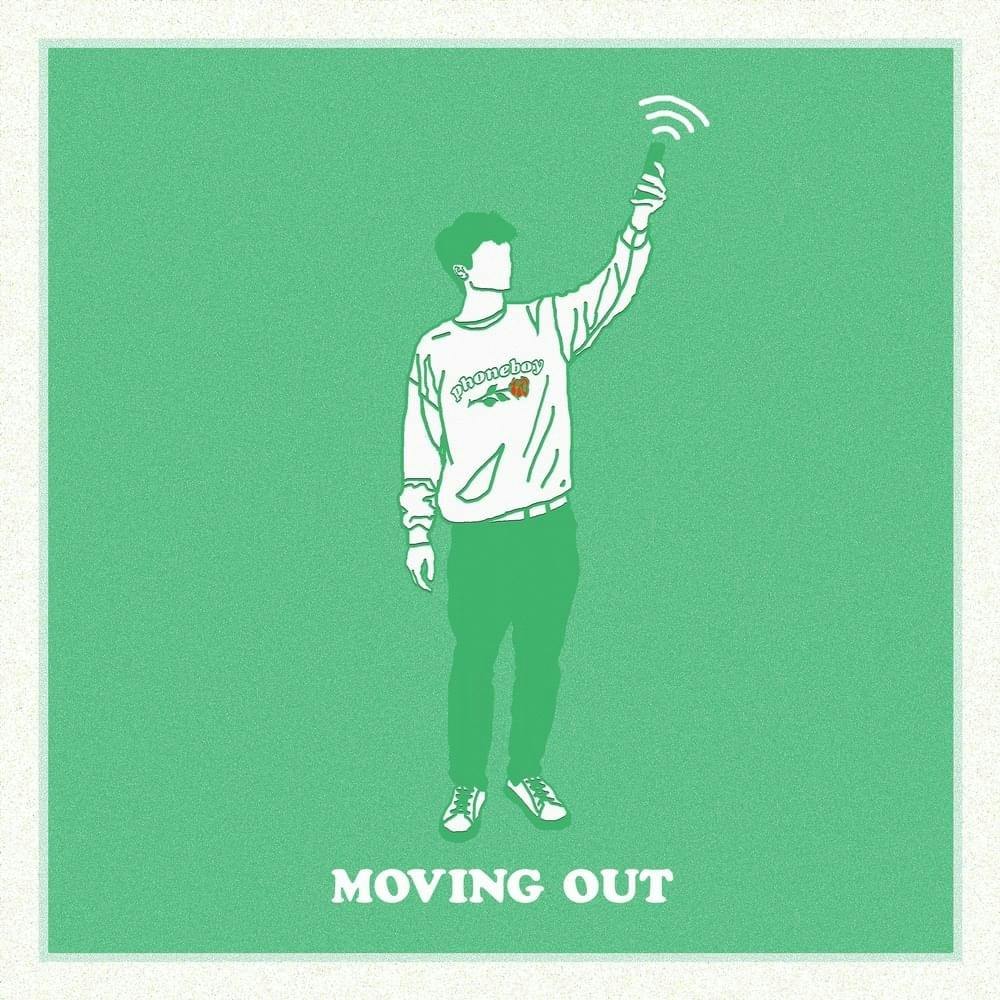The opinions and views expressed in this article are those of the author and do not reflect the opinion of Byte or Byte’s editorial board.
I first heard of New Jersey-based indie rock band Phoneboy almost two years ago when they played an opening act during the 2021 tour for The Happy Fits. I’m the type of person who likes to know what I’m listening to before I go to a concert, and so I gave their debut self-titled album (which was released that same year) a listen. Immediately, I was impressed by the simple, yet detailed sound to their music. Despite their do-it-yourself sound, Phoneboy was able to keep a clean sound to the production that I don’t always expect bands to do for their debut release. So, when the band released their first new single in October of last year, I was thrilled at the idea of a new album from them. And now, around five months and three more singles later, I am not disappointed.
If it ain’t broke…
Moving Out does not provide any sort of drastic change in tone or sound for the band. Instead, this sophomore album builds upon the youthful themes and sounds that helped develop the band’s identity in their first album. Repeatedly throughout the album, the idea of idealistic hopes and dreams are contrasted with harsh and disappointing realities, such as in the first track “Ferrari,” which details how the narrator is abandoning his dreams of becoming a celebrity. This carries over to more casual aspects of life. In both the songs “Runaway” and “What a Coward,” the idea of a disillusionment with the narrator’s current life is discussed.

The most common theme across the album is relationship issues. In songs like “Your Apartment” and “Wasting Time,” the narrator discusses the feeling that he doesn't know if he is doing the right things in a relationship, and might be wasting his or his partner’s time. Some songs detail the degradation of a relationship, such as “Open Up,” which explains how the narrator’s bad habits have placed him in a toxic relationship, or in “Need a Friend,” where the narrator realizes that his and his partner’s relationship has degraded into constant arguments, and that the two would be better off as friends. Meanwhile, songs like the title track and the incredibly strong closer “Gone, Gone, Gone” deal with the pains of a breakup.
The more relatable content in this album makes it a great place for Phoneboy to delve more into pop-punk-esque influences, with guitar distortion and emotive drumming helping to drive home the feelings associated with life’s common inconveniences. However, the band also experiments with more synth elements, particularly present in “Runaway” and “What a Coward.” The combination of sounds throughout the album gives the record moments of both spectacle and personal emotion, and many of these songs, including the title track, sound like they would be more than welcome in a larger venue when the band eventually gets even more popular.
The concept of change looms like a dark cloud throughout this album, as it probably does for a large number of younger people. Dreams and goals are shifting constantly, the “good old days” are passing by, and we fight to maintain our connections with others despite our ever-changing lives. In this album, Phoneboy puts their foot down and stays true to themselves in the face of life-changing feelings and events.
Some highlights off the album for me were the title track and “Your Apartment,” which really embody the pop punk influences that the band decided to use this time around. The former has a really nice sounding bridge, and the latter’s final repetition of the chorus has a fantastic show of emotion that sounds like it was a blast to play. I also love the closer, “Gone, Gone, Gone,” for its gradual layering and more dramatic tone, which is something I think generally benefits closing tracks.
Where to Now?
Moving Out is undoubtedly a solid album in my eyes (or ears, I guess). The album brings a clear improvement to the level of production shown in the first album. The lyrical content gets slightly more mature, while still maintaining a sort of youthful tone overall. I was particularly impressed with the increase in scale for the songs. The more reverberant production makes these songs feel like they should be performed in a larger venue, especially the finale track, which has a melody that feels like a direct invitation for live audiences to do that back and forth hand wave. Instrumentation has also improved since their last album, with what feels like much more emotion. However, I fear that some of the sonic elements of the album may begin to feel repetitive for some on repeat listens.

Sources:
Spotify, Spotify, Spotify, Spotify, Spotify, Spotify, Spotify, Spotify, Spotify, Spotify, Spotify
Photos:
Genius, softsoundpress
Contact Ian Case with comments at ian.case@bsu.edu





The Daily News welcomes thoughtful discussion on all of our stories, but please keep comments civil and on-topic. Read our full guidelines here.